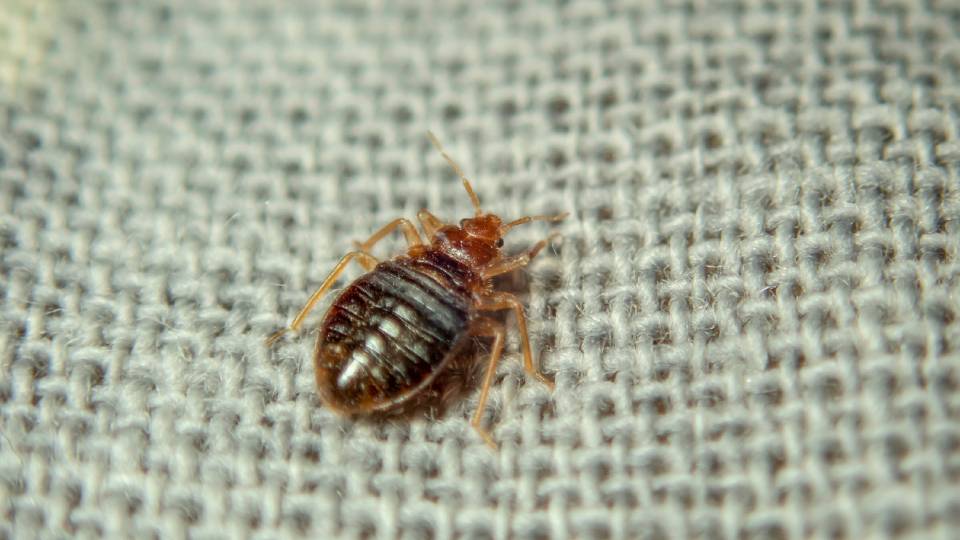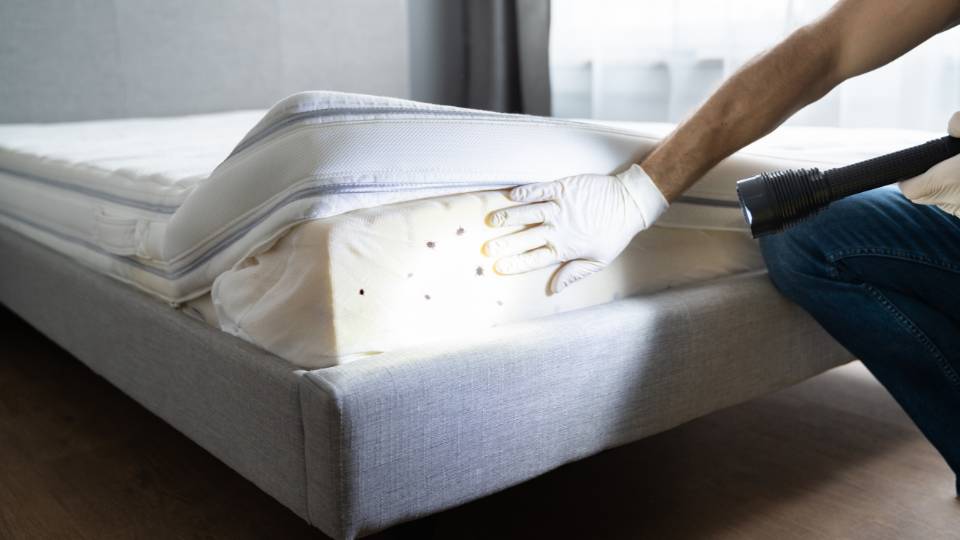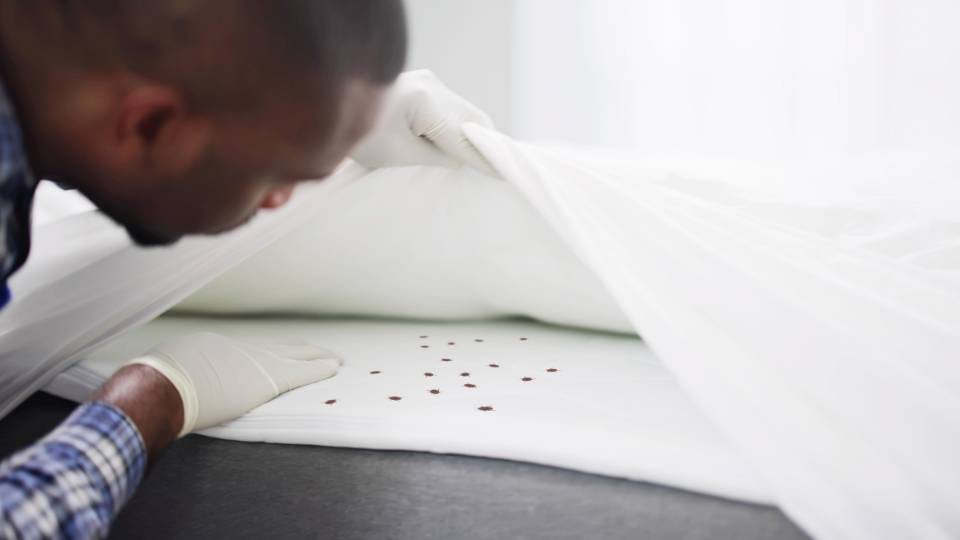
Bed bugs are more than just a nuisance; they can tarnish a business’ reputation and lead to significant financial loss.
For UK business owners, particularly those in the hospitality industry, maintaining a bedbug-free environment is crucial.
This guide will provide you with the essential steps and tips to effectively manage and eradicate bed bugs, ensuring your business remains a safe and welcoming place for your customers.
Table of Contents

Understanding Bed Bugs
What Are Bed Bugs?
Bed bugs are small, oval, brownish insects that feed on the blood of animals or humans.
Adult bed bugs have flat bodies about the size of an apple seed.
After feeding, their bodies swell and turn a reddish colour.
Why Are They a Problem?
Bed bugs can cause a range of issues, from itchy bites and allergic reactions to serious reputational damage.
In hotels, offices, and other business premises, an infestation can lead to negative reviews, lost customers, and potential legal challenges.
Statistics about Bed Bugs
- Prevalence: According to a 2021 survey by the British Pest Control Association (BPCA), there was a 10% increase in bed bug call-outs compared to the previous year.
- Impact: The same BPCA report highlighted that the hospitality sector is the most affected, with 75% of pest control companies reporting bed bug issues in hotels.
- Costs: The average cost of bed bug treatment in the UK ranges from £200 to £800, depending on the severity of the infestation.

Steps to Get Pest Control for Bed Bugs
1. Identify the Problem Early
Early detection is crucial.
Look for signs such as:
- Small bloodstains on bedding
- Dark or rusty spots of bed bug excrement on mattresses and sheets
- Bed bug eggs and shed skins in crevices and cracks
Encourage your staff to be vigilant and report any suspicious findings immediately.
2. Choose a Professional Pest Control Service
While there are DIY methods available, professional pest control services are more effective.
When selecting a pest control company:
- Check Credentials: Ensure they are members of the BPCA or another reputable organisation.
- Experience: Look for companies with experience in dealing with bed bugs, especially in commercial settings.
- Reviews: Read reviews and ask for references to gauge their reliability and effectiveness.

3. Prepare Your Premises
Before the pest control treatment, you need to prepare your premises.
This typically includes:
- Cleaning: Thoroughly clean and vacuum all areas.
Dispose of the vacuum bag or clean the canister immediately.
- Decluttering: Remove any unnecessary clutter where bed bugs can hide.
- Laundering: Wash all bedding, curtains, and clothing in hot water and dry on the highest setting.
4. Treatment Options
Professional pest control companies may use various treatment methods, including:
- Chemical Treatments: Involves the use of insecticides. Ensure that the company uses approved products safe for your business environment.
- Heat Treatments: Exposing bed bugs to high temperatures to kill them.
- Steam Treatments: Using steam to penetrate deep into fabrics and crevices.
- Cold Treatments: Freezing bed bugs using specialised equipment.
5. Post-Treatment Monitoring and Maintenance
After the treatment, it’s important to:
- Monitor: Regularly inspect for any signs of bed bugs.
- Prevent: Implement preventative measures such as encasing mattresses and box springs, reducing clutter, and training staff to recognise early signs of bed bugs.
- Follow-Up: Schedule follow-up treatments if necessary.
Many pest control companies offer maintenance plans to ensure the problem does not recur.
6. Educate Your Staff and Customers
Training your staff on bed bug prevention and detection is crucial.
They should know how to spot signs of an infestation and the steps to take if they suspect bed bugs.
Additionally, reassure your customers by informing them about the measures you have in place to prevent and manage bed bugs.

Conclusion
Dealing with bed bugs can be daunting, but with the right approach and professional help, you can effectively manage and eradicate these pests.
Early detection, choosing a reputable pest control service, and implementing preventive measures are key to maintaining a bed bug-free environment.
By staying proactive, UK business owners can protect their reputation, ensure customer satisfaction, and maintain a healthy, pest-free business.








